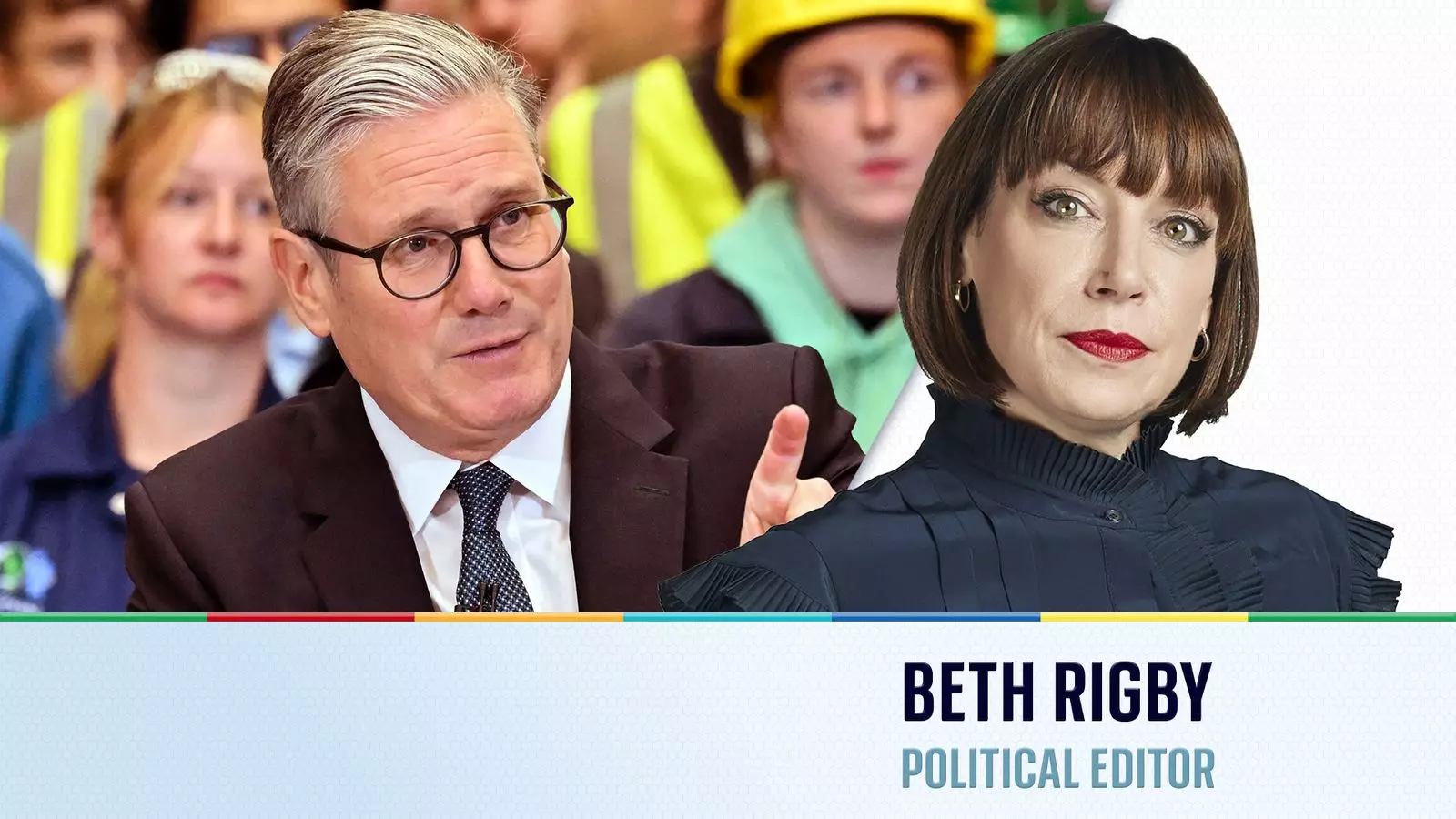Clement Attlee famously shaped the Labour Party’s legacy by founding the welfare state, ensuring a safety net for the most vulnerable in society. Fast forward to today, and we witness Sir Keir Starmer presenting himself in an eerily different light, as he prepares to transition the UK from a welfare state to what he refers to as a “warfare-ready state.” This alarming pivot, indicated at a recent event in Glasgow, signals a troubling ethos that prioritizes military readiness over the pressing social needs of British citizens.
The rhetoric coming from Starmer is far from subtle; he declares that the UK is encountering threats more dire than at any moment since the Cold War. The emphasis on “war-fighting readiness” raises eyebrows and poses serious questions about the direction of a government that should, first and foremost, prioritize the well-being of its constituents. By framing national security in such stark terms, Starmer neglects the complexities of a multipolar world and the socioeconomic needs of his own people.
Are We Weaponizing Our Resources?
Starmer’s announcement was laden with convictions, yet it lacked specificity—particularly when it came to fulfilling the ambitious goal of increasing defense spending to 3% of GDP. He insists on the paramount need for security, but when pressed about the timeline for achieving this target, he defers responsibility, citing “economic and fiscal conditions.” This contradiction is troubling and indicative of a leader who may be more interested in military posturing than real solutions for the socioeconomic challenges facing the UK.
In essence, this approach can be viewed as a veneer, a way of applying “sticking plaster politics” to a gaping wound. If Starmer genuinely believes that a robust defense is necessary to protect British citizens, he must grapple with the challenging calculus of budgetary trade-offs—specifically, whether to scale back welfare programs or raise taxes to fund expansive military initiatives. The implications of prioritizing a “warfare state” become immediately clear: what sacrifices must ordinary citizens make in the name of an uncertain security?
The False Dichotomy of Choices
Starmer’s government has recently faced electoral pushback, notably in local elections where voters expressed dissatisfaction with Labour’s direction. As a response, there are murmurs of reversing cuts to pensioners’ winter fuel allowances and considering the lifting of the two-child cap on benefits. However, these potential shifts hint at a conflicted approach rather than a cohesive strategy. Declarations of ambition to bolster defense spending while flirting with the idea of restoring welfare provisions creates an untenable contradiction that hangs over Starmer’s premiership.
What choices is Starmer really prepared to make? Will he prioritize a fortified armed forces, or respond to the immediate social needs of retirees struggling to cope with rising costs? His initial decisions to avoid lifting the benefits cap seemed firm, but now he appears to be backtracking in the face of public discontent. This indecision not only undermines his credibility but also presents an alarming picture of a leader adrift, trying to appease competing interests without a clear vision.
A Crumbling Foundation of Trust
Ultimately, the question of defense funding transcends mere fiscal figures. Starmer’s insistence on portraying the UK as a nation on a war footing raises a fundamental issue: if the government is serious about the impending security threats, why is it unable or unwilling to commit to the resources necessary to defend its citizens adequately? The notion of requiring an additional £13 billion without addressing other financial commitments creates an illusion—there cannot be a false dichotomy between defense and social welfare.
If Starmer indeed wants to present himself as the decisive leader needed in such tumultuous times, he must engage in honest dialogue about the choices he is confronting. The UK does not require a prime minister who offers empty promises about securing defense funding while glossing over the undeniable and immediate needs of its people. Only through transparently confronting these critical dilemmas can he hope to restore the public’s trust and, in doing so, forge a path forward that encompasses both security and welfare. The current trajectory threatens to lead us into a perilous reality—a state prepared for war, yet potentially neglecting the very citizens it vows to protect.


Leave a Reply